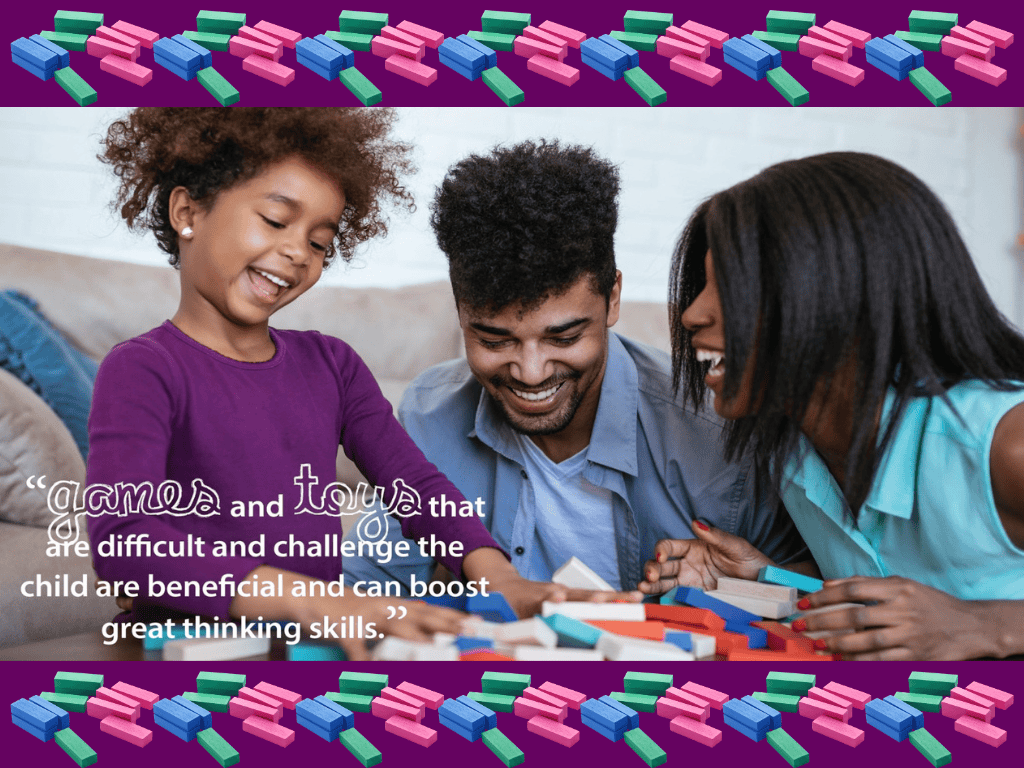Cognitive Development

Starting a child off on the right foot is often a challenge. This leads parents on a merry chase to find the correct preschool offering or setting that will give the child the best opportunity to make it big in the world. But what all parents want most is a happy, well-adjusted child who will flourish and not struggle. In order to avoid the struggle as much as possible, it is important to understand cognitive development. Parents need to make sure their child’s brain has all the tools it needs to function at its best. The demands of the curriculum today are difficult for many parents to wrap their heads around, much less to assist their student in the learning process, especially in the math field.
The methods of teaching and performing math have changed drastically from the parents’ own experiences in the classroom. Gone are the days of math facts recitation repeatedly on a daily basis. Now students have multiple ways to get to a solution and must show each way. The process has become more important than the answer which is hard for many to grasp. Here are a few thoughts to help guide parents in this new competitive world of choosing the right path for your littles.
Cognitive Development and Assessments
Cognitive development is of the upmost importance to a child’s development of the skills that will follow him/her all the way through the school system. Unfortunately, many parents do not know to get a cognitive assessment done or even where or when to start this process. When to get this assessment done is before starting school, but it is never too late. Adults can benefit from knowing their own cognitive strengths and weaknesses. That way, they too can work on enhancing their own skill sets. Who can give the assessment? A respected local psychologist, school specialist/diagnostician, or a reputed resource such as LearningRx Shreveport-Bossier all have options for cognitive assessments. Many preschools even partner with some of these resources to get screenings or offer discounts to these facilities.
For example, getting a child’s vision/hearing checked is essential to making sure that the student has the ability to see and hear the information being delivered. What if the brain cannot process the information at the speed of delivery? This makes the student struggle to keep up with the others in the class and ultimately fall behind. What if the memory is not as strong as it should be because the apple didn’t fall far from the tree? Then the child struggles to remember what the teacher has told them or to follow multi-step directions when orally given.
Cognitive Intervention
So how do these things get addressed? Knowing the strengths helps to continue to build on these. Knowing the weaknesses allows for the intervention necessary to get the child off to the right start. After getting the results, then the fun begins. Cognitive intervention/exercise is much like physical exercise. Many times it even involves using body movement as this connection is crucial in the brain. Gross body movement includes large muscle groups, and fine motor movements include things like handwriting. If a child struggles with motor movements, they may need occupational or physical therapy. A speech therapist can assist with assessing and treating speech difficulty such as delayed language or difficulty with forming certain sounds.
Cognitive therapy falls into two categories: behavioral and foundational. A cognitive behavioral therapist assesses and treats the behavior much like a counselor. They use intensive intervention such as play therapy and other techniques to help address behavioral concerns. A cognitive trainer such as those at LearningRx Shreveport-Bossier actually exercises the brain. We focus on the ability to use memory, processing speed, attention, and logic.
Cognitive exercise is something we all do to some extent because we use our thinking skills daily. When an area is weak, it is used less and thus never strengthens. It is the purpose of cognitive exercise to deliberately work these weak skills until they become stronger. As a result, IQ is boosted; and the student becomes a better learner at any age. IQ is simply the sum average of all of our thinking skills. The stronger these skills are, the better the IQ. Neuroplasticity means that the brain is malleable and can be trained. This boosts the sum average of the skills (IQ). **

Games Truly Improve Your Brain!
One of the most incredible ways to work on cognitive skills is simply through games. Games of all types including limited technological games have value, but it is the interaction with the adult that increases the vocabulary and trains the child to think. Learning to cook well means that one must practice the cooking and not just watch and read a recipe. Learning to play the piano means that one must practice doing so in order to become a master at it.
The same is true with thinking skills. In order to become a master at thinking and processing lots of new information – thoughts and data -, one must practice doing so. Games and toys that are difficult and challenge the child are beneficial and can boost great thinking skills. Card games are a great way to boost skills as you can see in our Facebook video. Our previous blog Games for the Parent’s Toy Box lists other types of games that have cognitive benefits. For more information on how games benefit children, go to Raise Smart Kids or Learning Works for Kids. You can also get our LearningRx game pack.
There are many free games and activities both online and homemade that can be beneficial to boosting a child’s cognitive function. Local facilities like Bricks for Kids and many more offer classes for music, dance, karate, and gymnastics that work on different parts of the whole body/brain connection. The main point is to be deliberate. Be purposeful in choosing what activities your child does.
SchoolHouse Rock can be also beneficial, so put some music on that teaches a few facts and dance the night away with your preschooler. After all, the parent is the best toy/learning activity that a child can have. And that includes the cardboard box with which to make imaginary places, for it is the imagination that takes us places through incredible reading and playing together.
Resources
** For more on this incredible, ground breaking research, you can look at all of the available research online via LearningRx Shreveport Research. For more information on brain training in general, go to LearningRx Shreveport Brain Training. You can also contact the LearningRx Shreveport-Bossier center by calling 318.797.8523 or emailing shreveport.la@learningrx.net.
Sign up for our monthly newsletter here!
Owner and Executive Director of LearningRx Shreveport- Bossier Donesa Walker, M.Ed., B.C.C.S wrote this article. Donesa has over 30 years of experience in teaching and educational administration. She opened LearningRx Shreveport-Bossier in 2008 with a passion to help families overcome the underlying deficits that cause dyslexia. Since then, both Donesa and her center have received a plethora of awards from local and national organizations. Donesa has published over 20 books and is currently pursuing a Doctorate in Psychology. LOLA magazine published the article, and Donesa also released it in The Collective . We have made some changes to make the article more blog friendly.







